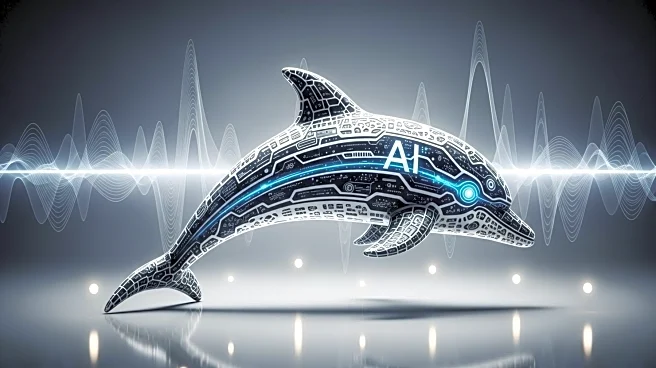What's Happening?
Researchers at McGill University have developed DOLPHIN AI, an advanced artificial intelligence tool capable of detecting previously invisible disease markers within single cells. Published in Nature Communications, the study demonstrates DOLPHIN's ability to identify over 800 disease markers in pancreatic cancer patients that conventional methods missed. This tool analyzes RNA expression changes at a granular level, providing a clearer view of cell states and aiding in early disease detection and treatment guidance. By zooming in on genetic building blocks, DOLPHIN offers a more detailed understanding of disease markers, potentially revolutionizing personalized medicine.
Why It's Important?
The development of DOLPHIN AI represents a significant advancement in the field of medical diagnostics, particularly in cancer research. By uncovering hidden disease markers, this tool enhances the precision of diagnostic processes, allowing for more tailored treatment plans. This reduces the trial-and-error approach in therapy selection, potentially improving patient outcomes and reducing healthcare costs. The ability to distinguish between aggressive and less severe cancer cases enables doctors to make informed decisions, optimizing treatment efficacy and patient care. This breakthrough underscores the transformative potential of AI in healthcare.
What's Next?
The researchers plan to expand DOLPHIN's capabilities to analyze millions of cells, paving the way for more accurate virtual cell models. This expansion could lead to the development of digital simulations of human cells, allowing for preclinical testing of drug responses and disease progression. As DOLPHIN's reach grows, it may become a standard tool in clinical settings, influencing diagnostic protocols and treatment strategies. Continued research and collaboration will be essential to integrate this technology into broader healthcare systems, ensuring its accessibility and effectiveness.
Beyond the Headlines
The use of AI in detecting disease markers raises ethical considerations regarding data privacy and the potential for algorithmic bias. Ensuring that AI tools are transparent and equitable is crucial to maintaining trust in healthcare innovations. Additionally, the shift towards AI-driven diagnostics may impact the role of healthcare professionals, necessitating new training and adaptation to technology-driven practices. Long-term, the success of DOLPHIN AI could inspire further AI applications in other areas of medicine, fostering a more data-centric approach to healthcare.









